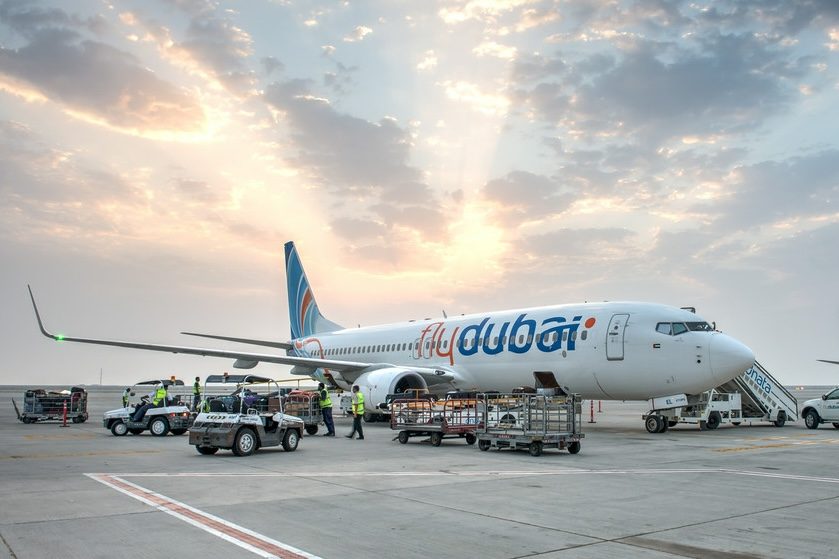At the end of last week an empty B737 departed from Boeing’s completion centre in Zhoushan, south of Shanghai on the Chinese coast, heading for Guam and then for Seattle and its final destination – a Boeing storage facility.
The plane is the latest victim of the unresolved dispute over tariffs between the United States and China.
The Chinese government has told its airlines not to take delivery of any new Boeing aircraft or parts. So at least two more planes will be making the same journey over the next few days.
Chinese airlines have over 100 B737 aircraft and 11 B787’s on order for delivery in the next few years.
While those orders are still in place and production is ongoing, the tariffs dispute means that airlines are re-evaluating their options. They may cancel or reschedule deliveries to suit an adjusted market.
Earlier in the week China Southern, which had put its whole fleet of B787-900 aircraft up for sale on the second-hand market, suddenly announced that it was taking the planes back as a precautionary step.
At the same time, the CEO of Delta Air Lines in the US confirmed that he could not afford to take delivery of any of the 25 Airbus aircraft due by the end of the year because they will be stuck with a 20 percent tariff.
Airline CEOs are confused!
These events and other issues such as the shipment of spare parts has airlines scrambling to develop contingency plans not just around delivery schedules but prices to be paid; a 20 percent tariff on a multi-million-dollar aircraft is a lot for anyone to find. And not every airline in the world is awash with cash.
For some the hope will be that this is a short-term issue that can be resolved by extending the operational lives of aircraft already in their fleets.
In the confusion opportunities may suddenly have open up in the strange ways. The immediate winners will be aircraft lessors and those who have spare capacity available for the coming months. They can lease out capacity at top rates.
More fundamentally both Boeing and Airbus will be scrutinising their order books to determine those deliveries which may be under threat.
That may free up spaces for airlines in the Middle East to jump the queue for new aircraft.
From a product perspective, taking over an existing order for a wide-bodied aircraft is challenging. The interior designs of aircraft are unique to each airline. While modifications can be made, from an operational perspective airlines like standardised fleets.
However, for airlines operating single-aisle aircraft such as the B737 or A320, there may be more scope for queue jumping.
Narrow-body aircraft interiors tend to begin and end with a toilet and galley at each end of a metal tube. Supplying specific engine types is a challenge but one that can be overcome in most cases.
For FlyDubai, which has Boeing 737 deliveries scheduled through to 2033, opportunities may exist for some of those aircraft to be delivered earlier than originally planned, if of course the airline wants to accelerate growth.
Similarly, Flynas, the Saudi based low-cost airline, is expecting 20 A320s to be delivered by the end of 2026.
Delta Air Lines has expressed concern around acceptance of Airbuses and late last year Jet Blue deferred delivery of 44 Airbus so there may be scope for local airlines to grow quicker than originally planned. If they decline the opportunity then others in the region are already showing interest.
India’s two largest airlines, Air India Group and IndiGo are well set with aircraft orders extending into the next decade but second-tier carriers such as Akasa Air, which has an existing fleet of 27 aircraft and 199 more on order, would love to see an acceleration in deliveries.
Akasa is certain to want to expand to markets such as Saudi Arabia, the UAE and Kuwait, where the airline already has a small presence. All of which proves that in any trade dispute there are potential winners.
If or when the current tariffs disputes are resolved, then normality will return quickly. There are limited alternate suppliers of new aircraft.
But in the meantime brand new aircraft in Chinese airline liveries are reserving their spaces in the aircraft park at Seattle.
John Grant is partner at UK consultancy Midas Aviation
Register now: It’s easy and free
AGBI registered members can access even more of our unique analysis and perspective on business and economics in the Middle East.
Why sign uP
Exclusive weekly email from our editor-in-chief
Personalised weekly emails for your preferred industry sectors
Read and download our insight packed white papers
Access to our mobile app
Prioritised access to live events
Already registered? Sign in
I’ll register later



